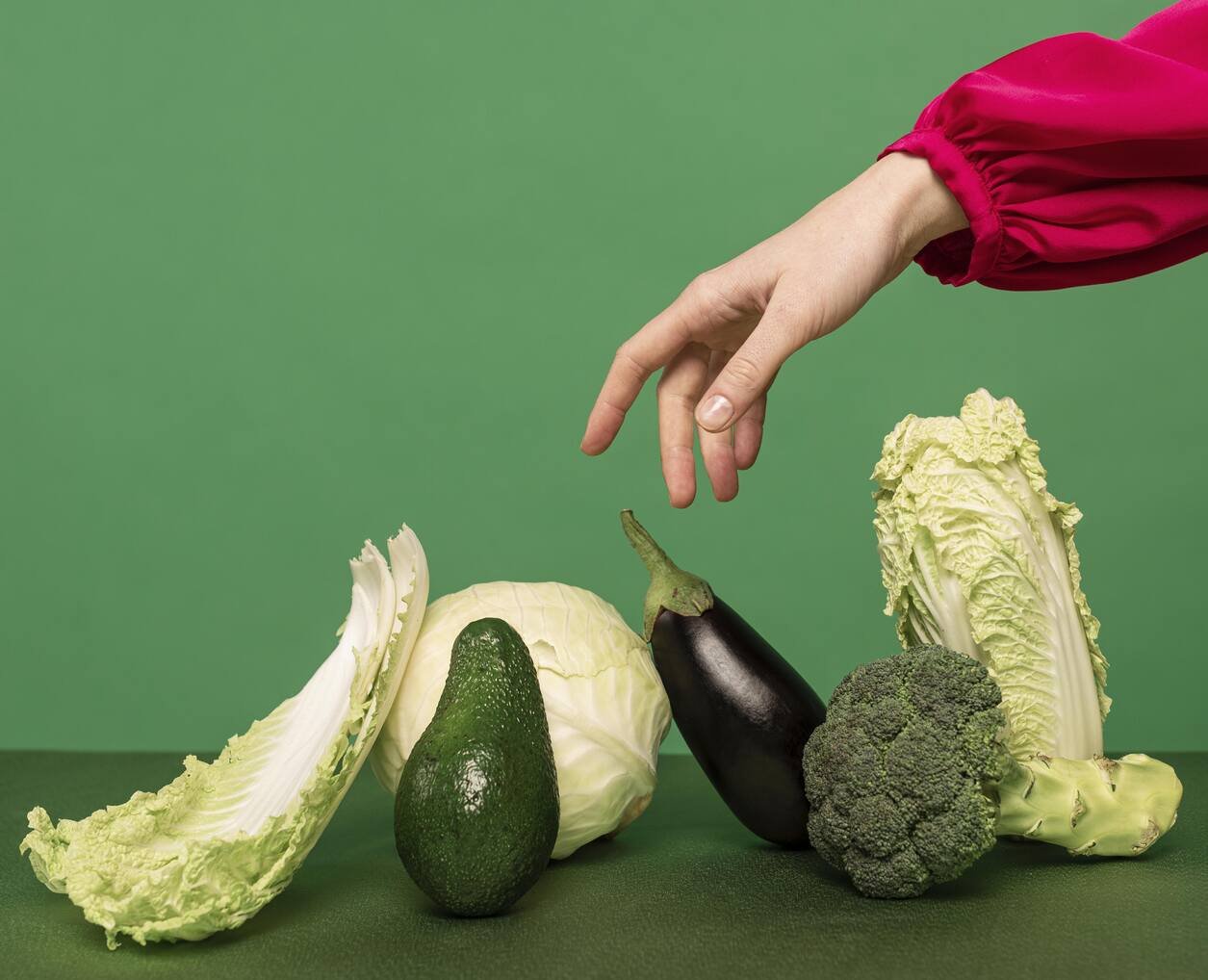Adopting vegetarian food may be the right way to stay healthy and happy. A vegetarian diet is a complete diet, which is associated with a high intake of fiber, vitamins C and E, folic acid, magnesium, unsaturated fat, along with the Benefits Of Being Vegetarian.
And this is why vegetarians have lower cholesterol, lower blood pressure, and a lower risk of heart diseases. In addition, vegetarian food is easy for the body to digest, takes less time to cook, is healthier, and most importantly saves your money.
You may have heard that some people prefer to make vegetarian than hardcore non-vegetarian. Vegetables are important not only for our healthy life but also for the environment. Being a vegetarian is so beneficial for our health. Let us tell you what are the Benefits Of Being Vegetarian.
Here, We Share The Amazing Benefits Of Being Vegetarian
1. HIGH FIBER CONTENT:
fruits and vegetables also have high fiber content, which is essential for proper digestion. It helps in improving the metabolism of the body and helps in the rapid elimination of toxins and other chemicals from the body. Vegetarian food is usually water-based, which helps maintain the necessary fluids in the body.
2. MAY REDUCE DEPRESSION:
A vegetarian may act better than their non-vegetarian. It also revealed that a vegetarian had lower scores on the depression test and mood profile than meat or fish eaters. In addition, most vegetarian foods have an element of freshness, especially when it comes to organic products. So it is bound to purify our minds and keep our thoughts positive.

3. INCREASES LIFESPAN:
however, many factors are responsible for the extended lifespan, and the adoption of the vegetarian diet is one factor that you can follow. The more you eat fruits or vegetables, the less toxin and chemical buildup in your body, thus facilitating more healthy years and longevity.
4. LOWER CHOLESTEROL LEVEL:
vegetarian diets are cholesterol-free. Although cholesterol is an essential component of every human cell, vegetarians do not have to worry about not getting enough cholesterol, as the body can make all the cholesterol needed from vegetarian foods. Korean researchers, after examining the long-term effects of following a vegetarian diet, concluded that vegetarians had lower body fat and cholesterol levels than omnivores.
5. REDUCES THE RISK OF DIABETES:
Non-vegetarians usually experience peak blood sugar levels after consumption, sometimes too high. This can be avoided and a continuous flow of blood sugar can be maintained if non-vegetarians take a vegetarian diet. A healthy vegetarian diet is easy to absorb, nutritious, and contains fewer fatty acids.
6. LOWER RISK OF STROKE AND OBESITY:
Vegetarians have to be very aware of their food choices and usually never take an overdose or food based on emotions; Two exercises that contribute a lot to obesity. The University Hospital Ghent Department of Pediatrics in Belgium says that adopting a vegetarian diet is a good way to reduce the likelihood of stroke or obesity.
7. GIVES HEALTHY SKIN:
If you want healthy skin, then you need to eat the right amount of vitamins and minerals along with plenty of water. The fruits and vegetables we eat contain vitamins, minerals, and adequate amounts of antioxidants. Also, since they are water-based, if you eat them raw it can further improve the intake of healthy nutrients. Many vegetarian foods are also rich sources of antioxidants that help you stay disease-free with healthy skin.
8. IMPROVES METABOLISM:
Vegetarian food is easy to digest and keeps a person’s metabolism in good condition. Also, resting metabolic rate or RMR is significantly higher in people who eat vegetarian food. You should know that RMR has a direct relationship with a person’s metabolism – this means that the higher the RMR, the faster it burns fat and vice versa.
9. IT IS ECONOMICAL:
End but not smallest, if you happen a vegetarian diet then you are saving a big amount. Non-vegetarian food is undoubtedly more expensive than vegetarian food. So now the election is completely yours.
Some Good Foods To Eat For A Vegetarian Diet Are:
FRUITS: Apples, Bananas, Oranges, Pears, Peaches.
VEGETABLES: Leafy Greens, Asparagus, Broccoli, Tomatoes, Carrots.
GRAINS: Quinoa, Barley, Buckwheat, Rice, Oats.
LEGUMES: Lentils, Beans, Peas, Chickpeas.
DRY FRUITS: Almonds, Walnuts, Cashews, Chestnut.
HEALTHY FATS: Coconut Oil, Olive Oil, Avocado.
PROTEIN: Nutritional Yeast, Eggs, Dairy Products.
“ EAT HEALTHY LIVE HEALTHY BE HEALTHY !!! “
Subscribe Our News Letter or stay with Amazefeeds for upcoming Health Tips and Benefits..
